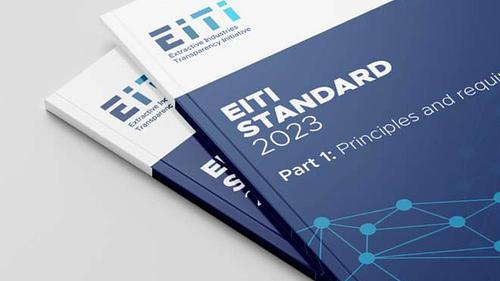
Context and learning objectives
The “resource curse” refers to the observed pattern where countries rich in natural resources often experience slower economic growth. Explanations for this phenomenon include the Dutch disease and currency appreciation, a decline in institutional quality, and the outbreak of conflicts over resource control. This risk weighs heavily on many African countries rich in resources. In these contexts, the ability to design and implement a fair and effective tax system is critical for generating revenue and supporting national development.
This training is designed to help participants examine the key risks and challenges involved in taxing the extractive sector—such as aggressive tax planning, indirect share transfers, and VAT credit issues—that require special attention from tax administrations.
Participants will also explore the main policy solutions implemented in different countries. Throughout the online modules, these issues will be brought to life through practical case studies drawing on basic tax and accounting concepts such as the balance sheet and income statement.
Understand how the economic characteristics of the sector and the existence of a natural resource curse influence the construction of a tax system specific to the extractive sector.
Understand what an optimal tax system versus an equitable tax system means and understand on what criteria the trade-offs are made.
Understand what are the different aggressive tax optimization practices that companies can use and what solutions can be put in place by States to limit them.
Understand the challenges faced by tax and customs administrations and what solutions can be found in the implementation of tax policy within the extractive sector.
Understand how extractive companies can avoid the taxation of capital gains through indirect transfers and what are the levers available to States to try to remedy this.
Understand how value-added tax works and the challenges it can pose in the extractive sector.
You have reached the end of this training. Congratulations! It is now up to you to apply the knowledge you have gained by completing a final quiz as your end-of-course assessment.
Target audience
- Economists, lawyers, tax specialists, tax administrations, ministries of mines and hydrocarbons
- Other public and private professionals in Africa’s extractive industries
Modalités
Cette formation est dispensée en ligne, offrant aux apprenant·es une flexibilité totale grâce à un accès illimité aux contenus, disponibles 24h/24 et 7j/7 sur la plateforme d’enseignement à distance de l’IHEDD. Chaque participant·e peut ainsi avancer à son propre rythme, selon ses disponibilités.
Pour favoriser l’échange et l’entraide, un forum est mis à disposition sur l’espace de formation, complété par un groupe WhatsApp permettant de créer une communauté d’apprenants.
En complément, des rendez-vous réguliers en visioconférence (classe virtuelle) sont organisés avec les formateur·rices et la communauté d’apprenant·es. Ces sessions permettent d’approfondir les notions abordées, d’échanger sur les problématiques rencontrées et d’obtenir des réponses aux questions.
Validation des acquis
At the end of the course, IHEDD will award a certificate on behalf of Ferdi, a recognised professional training organisation. This certificate states the name of the course and the total number of validated training hours.
To receive it, participants must pass a final quiz with a minimum score of 60%, and submit a completed rent-sharing model and a simulation note
Historique des sessions précédentes
- 24 Apr – 22 May 2023: 62 participants | 76% pass rate
- 1 May – 31 May 2024: 50 participants | 70% pass rate
- 14 Apr – 12 May 2025: 26 participants | 74% pass rate
Infos pratiques
- Durée : 11h of self-paced work on modules + 3 live virtual classes
- La formation est délivrée en English
- Matériel : Il est indispensable de disposer d’un ordinateur et d’une connexion internet.
- La formation est accessible aux personnes en situation de handicap.
- Prérequis : no previous academic qualifications needed, but participants should be comfortable using basic Excel functions
- Nombre de places : 40
Participation aux frais de formation
Responsable de formation
- Grégoire ROTA-GRAZIOSIProfesseur des universités en économie, École d'Économie - Cerdi - UCA Co-responsable du programme Fiscalité pour le développement durable, FerdiResponsable de formations, Institut des hautes études du développement durable (IHEDD-Ferdi) Co-directeur de la Revue Économique du Développement.

Formatrices et formateurs
- Grégoire ROTA-GRAZIOSIProfesseur des universités en économie, École d'Économie - Cerdi - UCA Co-responsable du programme Fiscalité pour le développement durable, FerdiResponsable de formations, Institut des hautes études du développement durable (IHEDD-Ferdi) Co-directeur de la Revue Économique du Développement.

- Yannick BOUTERIGEAssistant de recherche, FerdiResponsable de formations au sein de l'Institut des hautes études du développement durable IHEED- Ferdi, Chargé d’enseignement à l’École d’économie de l’université Clermont Auvergne, Professeur affilié à l’École supérieure de commerce (ESC - Clermont Business School)




.png)


